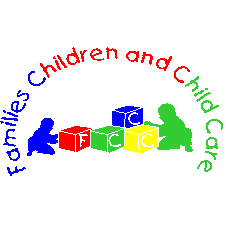In total, 1,862 mothers consented to join the study. Of these, 217 did not meet eligibility criteria (due to maternal and child health, and selective over-sampling of low socio-economic status mothers), and 444 did not participate (e.g. due to refusal).
Lower participation in the study was apparent for mothers recruited from more disadvantaged wards (e.g. as measured by the Child Poverty Index, CPI; Nobel et. al., 2000). The two recruitment sites, North London and Oxfordshire, differed in levels of poverty, with the greater proportion of North London mothers living in relatively disadvantaged areas (below the national average), and a greater proportion of Oxfordshire mothers living in relatively advantaged areas (above the national average). However, when combined, the overall sample had a relatively even distribution of disadvantaged and advantaged families.
Download a PDF of The Families, Children and Child Care (FCCC) study in relation to area characteristics: Recruitment and sample description by Lars-Erik Malmberg, Beverley Davies, Jo Walker, Jacqueline Barnes, Kathy Sylva, Alan Stein and Penelope Leach, 2005.
FCCC research protocol
A prospective study of the effects of different kinds of care on children’s development in the first five years.
Download a PDF of the full research protocol
Published
Barnes, J., Leach, P., Sylva, K., Stein, A., Malmberg, L-E. & the FCCC team. (2006). Infant child care in England: mothers’ aspirations, experiences, satisfaction and caregiver relationships. Early Child Development and Care, 176(5), 553-573. doi:10.1080/03004430500317408
Leach P., Barnes, J., Nichols, M. Goldin, J., Stein, A., Sylva, K., Malmberg L-E. & the FCCC team. (2006). Child care before 6 months of age: a qualitative study of mothers’ decisions and feelings about employment and non-maternal care. Infant and Child Development, 15,471-502. doi.org/10.1002/icd.473
Barnes, J., Altmann, L., Ram, B., Stein, A., Leach, P., Sylva, K., Malmberg, L-E. & the FCCC team. (2007). Factors associated with negative emotional expression: a study of mothers of young infants. Journal of Reproductive and Infant Psychology, 25, 122-138. doi:10.1080/02646830701292399
Sylva, K., Stein, A. Leach. P., Barnes, J. Malmberg, L. & the FCCC team. (2007). Family and child factors related to the use of non-maternal infant care: and English study. Early Childhood Research Quarterly, 22(1), 118-136. doi.org/10.1016/j.ecresq.2006.11.003
Malmberg, L-E, Stein, A., West, A., Lewis, S., Barnes, J., Leach, P., Sylva, K. & the FCCC team (2007). Parent-infant interaction: a growth model approach. Infant Behavior and Development, 30, 615-630. doi:10.1016/j.infbeh.2007.03.007
Ereky-Stevens, K (2008). Associations between mothers’ sensitivity to their infants’ internal states and children’s later understanding of mind and emotion, Infant and Child Development. 17(5) 527-543. doi.org/10.1002/icd.572
Leach, P., Barnes, J., Malmberg, L-E., Sylva, K., Stein, A. & the FCCC Team (2008). The quality of different types of child care at 10 and 18 months: a comparison between types and factors related to quality. Early Child Development and Care, 178(2), 177-209.
Stein, A., Malmberg, L-E, Sylva, K., Barnes, J. Leach, P. and the FCCC team (2008). The influence of maternal depression, caregiving, and socioeconomic status in the post-natal year on children’s language development. Child: Care, Health and Development, 34(5), 603-612.
Lewis, S., West, A., Stein, A., Malmberg L-E, Bethell, K., Barnes, J., Sylva, K., Leach, P. & the FCCC team. (2009) A comparison of father-infant interaction between primary and non-primary care giving fathers. Child: Care, Health and Development. 35(2), 199-207. doi:10.1111/j.1365-2214.2008.00913.x
West, A., Lewis, S., Ram, B., Barnes, J., Leach, P., Sylva, K., Stein, A. & the FCCC team. (2009) Why do some fathers become primary care givers for their infants? A qualitative study. Child: Care, Health and Development, 35(2), 208-216. doi:10.1111/j.1365-2214.2008.00926.x
Barnes, J., Leach, P., Malmberg, L-E., Stein, A., Sylva, K. and the FCCC team (2010). Experiences of childcare in England and socio-emotional development at 36 months. Early Child Development and Care, 180(9), 1215-1229. doi:10.1080/03004430902943959
Sylva, K., Stein, A., Leach, P., Barnes, J., Malmberg, L-E and the FCCC Team (2011) Effects of early child care on cognitive, language and task-related behaviours at 18 months: an English Study. British Journal of Developmental Psychology, 29, 18-45. doi:10.1348/026151010X533229.
Eryigit-Madzwamuse, S., Barnes, J. (2013) Is early center-based child care associated with tantrums and unmanageable behavior over time up to school entry? Child and Youth Care Forum, 42(2), 101-117. doi:10.1007/s10566-012-9193-7 (impact 1.245)
Smith, H., Eryigit-Madzwamuse, S. & Barnes, J. (2013). Paternal postnatal and subsequent mental health symptoms and child socio-emotional and behavioural problems at school entry. Infant and Child Development, 22, 335-348. doi:10.1002/icd.1800
Stein, A., Malmberg, L-E., Leach, P., Barnes, J., Sylva, K. and the FCCC Team. (2013) The Influence of Different Forms of Early Childcare on Children’s Emotional and Behavioural Development. Child: Care, Health and Development, 39(5):676-87. doi:10.1111/j.1365-2214.2012.01421.x
Eryigit-Madzwamuse, S. & Barnes, J. (2014) Patterns of Child Care Arrangements and Cognitive Development. Journal of Child and Adolescent Behavior, 2(5), 165. doi:10.4172/jcalb.1000165
Chiorri, C., Hall, J., Casely-Hayford, J. & Malmberg, L-E. (2015). Evaluating measurement invariance between parents using the Strengths and Difficulties Questionnaire (SDQ). Assessment, 23(1), 63-74. doi.org/10.1177/1073191114568301
Mermelshtine, R. & Barnes, J. (2016) Maternal responsive-didactic caregiving in play interactions with 10-month-olds and cognitive development at 18 months. Infant and Child Development, 25(3), 296-316. doi:10.1002/icd.1961
Barnes, J. & Melhuish E. (2017) Amount and timing of group childcare from birth and cognitive development at 51 months: a UK study. International Journal of Behavioral Development, 41(3), 360-370. doi:10.1177/0165025416635756
Ruiz, R.M. & Barnes J. Temperament, parental personality and parenting stress in relation to socio-emotional development at 51 months. Early Child Development and Care. Online January 2018. doi: 10.1080/03004430.2018.1425297
Mermelshtine, R. & Barnes, J. (2018). Fathers’ childhood experiences, adult mental health problems and perceptions of interactions with their 36 month-old children. Journal of Educational and Developmental Psychology, 8 (2), 41-53. doi:10.5539/jedp.v8n2p41
Dissertations
Linking child care to infant attachment: what lies in-between?
by A. Robinson. Open University. D. Clin. Psychol. (2000)
The pressure of parenting: does it predict attachment? A study of the contribution of maternal parenting stress and family functioning to infant attachment
by N. Ward. Open University. D. Clin. Psychol. (2001)
A qualitative investigation into the salient factors contributing to mothers’ early return to work
by M. Nichols. University College London. MSc (2005)
Mothers’ internal state focus : associations with individual differences in children’s understanding of mind and emotions
by K. Ereky-Stevens. University of Oxford. DPhil (2005)
The relationship between parent-infant interaction at 10 months and infant developmental outcomes at 18 months and 36 months: a comparison of mothers and primary and non-primary care-giving fathers
by R. Ram. Birkbeck, University of London. MSc (2008)
Lexical development in a bilingual setting
by A. Bradley. Birkbeck, University of London. PhD (2010)
An Exploration of the Relationship between: Child Temperament, Parental Background, Parental Attitudes and Family Relations. Focusing on the Similarities and Differences between Maternal and Paternal Reports
by Sarah Burt. MSc Dissertation, Birkbeck, University of London (2011)
The relationship between parental postnatal depressive symptoms and children’s emotional and behavioural difficulties: A multi-informant approach
by Hannah Smith. MSc Dissertation, Birkbeck, University of London (2011)
The development of scaffolding observation tool: The prediction of cognitive abilities at school entry from maternal behaviours in the first year.
by R. Mermelshtine
Stress in working and non-working mothers and the effect on socioemotional development at 36 months
by Michelle Gormally
The relevance of care experiences up to 18 months for language development at 36 months
by Adwoa Okyere
The relevance of maternal scaffolding behaviours in infancy to child cognitive abilities and academic achievement: A bioecological study
by Roni Mermelshtine
The development of scaffolding observation tool: The prediction of cognitive abilities at school entry from maternal behaviours in the first year.
by Roni Mermelshtine. MSc Dissertation, Birkbeck, University of London (2012)
Stress in working and non-working mothers and the effect on socioemotional development at 36 months
by Michelle Gormally. MSc Dissertation, Birkbeck, University of London (2013)
The relevance of care experiences up to 18 months for language development at 36 months
by Adwoa Okyere. MSc Dissertation, Birkbeck, University of London (2013)
The relevance of maternal scaffolding behaviours in infancy to child cognitive abilities and academic achievement: A bioecological study
by Roni Mermelshtine. PhD, Birkbeck, University of London (2016)
Children’s perceptions of the mother-child relationship at 51 months in relation to demographic factors, maternal factors and family functioning. By Seyma Celiksoydan, MSc, University of London (2018).

